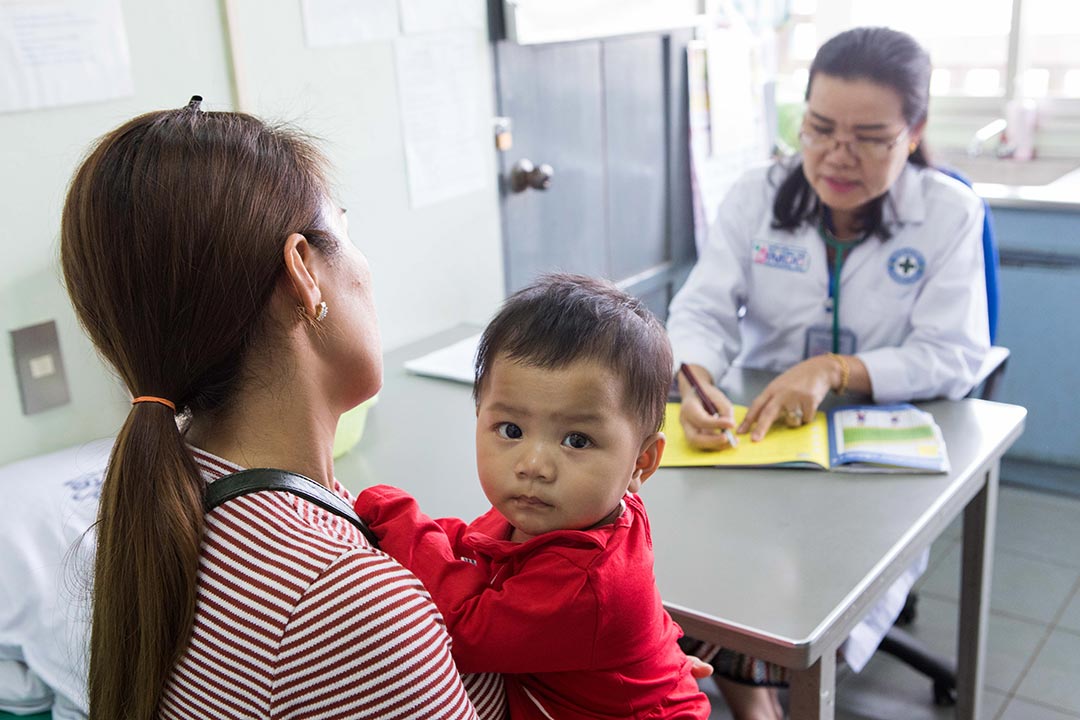
Vientiane, 25 March 2024 – Over 7.5 million people from under-served rural areas in the Lao People’s Democratic Republic (PDR) will benefit from a US$ 62 million World Bank project to improve health and nutrition services.
Phase two of the Health and Nutrition Services Access Project (HANSA2), which features funding from the World Bank, Australian Government, Gavi, the Vaccine Alliance, and the Global Fund to Fight AIDS, Tuberculosis and Malaria, will help the Lao PDR Government scale up the delivery of quality essential health services to those most in need and play an important role in improving nutrition in rural areas.
Despite achieving significant improvements across health indicators since 2000, Lao PDR still had the highest child mortality rate in South-East Asia in 2021. While reductions have been made in vaccine-preventable diseases, the COVID-19 pandemic disrupted essential health services and routine immunisation, meaning that gains have slowed or been lost. The growth of around a third of Lao children is stunted by poor nutrition; and every year, around 7,000 Lao children die before reaching their fifth birthday, most of them through preventable and treatable conditions.
“One of the enduring challenges in Laos is bringing health and nutrition services to the large number of people living in remote villages,” said Alex Kremer, World Bank Country Manager for Lao PDR. “This project will renew efforts to provide more and better services, and increase the demand for them, in rural communities. Together with Australia, Gavi and the Global Fund, we can apply a strong focus on increasing coverage for women and ethnic groups.”
The project has so far supported improved primary health care services using performance-linked payments and the enhanced District Health Information System, which provides data on sex, age, ethnicity and location for better planning, monitoring and decision-making in the allocation of resources. Authorities are scaling up the activities of this project in four northern provinces to provide nationwide coverage.
“Although the support already received from our partners has helped Laos improve health coverage, we still see disparities in health outcomes and services across the country,” said Minister of Health Dr Bounfeng Phoummalaysith. “Not all population groups are benefiting equally from these improvements, so the second phase of this project will bring more services and raise awareness on crucial health issues to families in poor, rural and upland areas of the country.”
To address the low nutrition rates among children in these areas, the project will help staff in district health services and village health centres work with villagers to address high birth rates among adolescents; mothers’ poor diets and feeding practices; and low take-up of services, including for antenatal care, assisted child delivery and emergency obstetric care. It will also expand services such as family planning, water supply and sanitation.
Nadia Lasri, Senior Country Manager and Coordinator of Gavi support in Lao PDR, said, “Addressing malnutrition helps boost immunity and vaccination effectiveness, especially for the most vulnerable. The project, HANSA2, will enhance access to quality health and nutrition services; and provide an integrated, coordinated approach to strengthening health systems and addressing gender and climate change concerns in Lao PDR.”
MEDIA CONTACTS
Aiden Glendinning
External Affairs Officer
World Bank, Vientiane, Lao PDR
+856 21 266278
Eunice Kilonzo-Muraya
+41 76 424 85 03
ekilonzo@gavi.org
Meg Sharafudeen
+41 79 711 55 54
msharafudeen@gavi.org

